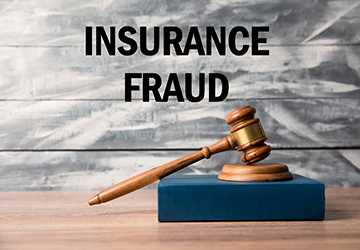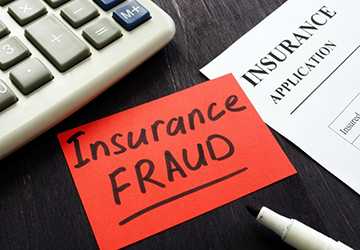7 Insurance Fraud Red Flags: How to Protect Yourself?
Do you know how much insurance fraud costs Americans each year? Over $80 billion. That's a lot of money that could be paying out legitimate claims or keeping premiums low.
Insurance fraud can have a direct impact on you, even if you're not the victim of a crime. When insurance companies have to pay out fraudulent claims, they have to raise premiums for everyone. This means that you're paying more for your insurance, even if you're doing everything right.
It can take many forms, from staging accidents to falsifying medical records. But some red flags can help you spot potential fraudsters.
In this post, you'll learn about 7 of the most common insurance fraud red flags. You'll also learn how to protect yourself from fraudsters and what to do if you suspect someone is trying to commit insurance fraud.

Spotting Insurance Fraud: 7 Red Flags to Protect Yourself
Prepare to uncover hidden dangers in your insurance policies. We'll reveal seven key warning signs that can safeguard your money. These are your defenses against fraudsters who want to take your hard-earned cash.
By recognizing these signs, you can protect yourself from shady deals and scams. Let's get started!
1.Cheap Insurance: When Is It Too Good to Be True?
Some insurance policies have meager prices. It's good to save money, but cheap insurance can be a warning sign. Insurance companies set prices based on risk.
So, if an offer seems too good, be careful. It might mean the company is cutting corners or, worse, trying to cheat you.
Low prices mean the insurance company won't help when you need it most. To protect yourself, check the company's reputation, get quotes from different companies, and ensure the policy matches what you want.
2.Pushy Salespeople: Spotting Aggressive Sales Tactics
Have you ever felt pressured into buying insurance? Natural insurance agents should give you information and time to decide. If someone rushes you into a decision with fear, that's a warning sign.
Pushy sales tactics might mean someone wants to trick you. Protect yourself by taking time, thinking about your options, and asking a trusted advisor for help.
3.Unlicensed Agents: Avoid Unprofessional People
Working with an unlicensed agent can be a big problem. You need to make sure your agent can sell insurance in your state. If they aren't licensed, they might not be experts or cheat you.
To protect yourself, ask for their credentials and check their license with your state's insurance department. You can work with someone who knows what they're doing.
4.Missing Policy Details: Understand What You're Buying
Your insurance policy should tell you everything it covers in simple words. If it's missing important information or uses confusing words, that's a problem.
Fraudsters use unclear policies to cheat you. To protect yourself, read your policy carefully, ask questions about anything you don't understand, and don't sign if unsure.

5.Claims Denied Without Reason: Know Your Rights
It's frustrating when a legitimate claim gets denied for no reason. This could be insurance fraud. Insurers should have clear rules for claims.
To protect yourself, read your policy's claim rules, keep records of all communications, and get help if your claim is unfairly denied. You have the right to be treated fairly.
6.Changing Company Info: Make Sure They're Real
Legit insurance companies keep their contact details the same. If your insurer keeps changing its name or contact info, it might be a fraud.
To protect yourself, check if your insurer is accurate, and save all communication. An honest insurer will have the exact contact details.
7.Canceled Policies for No Reason: Don't Get Left Unprotected
Having your policy canceled without a good reason can leave you in trouble. Fraudsters might withdraw to take your money.
To protect yourself, know your rights about policy cancellations, and check your policy for cancellation rules. If it's unfair, get legal advice to ensure your rights are respected.
Conclusion
In a world where insurance should provide security, it's crucial to protect yourself from insurance fraud. The "7 Insurance Fraud Warning Signs" discussed in this blog post are tools to keep your money safe.
By recognizing these warning signs and taking the proper steps, you can ensure that your insurance is legitimate and your financial future is secure.
Don't let insurance fraud harm your financial well-being. Stay alert, ask questions, and seek help when you need it.
Your hard-earned money and assets are worth the effort to protect.


